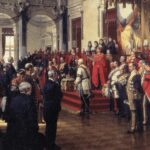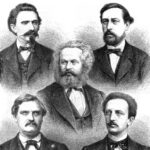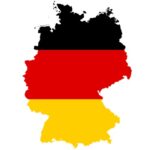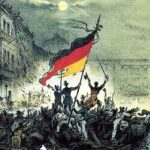In the West German Bundestag elections of September 1969, the CDU/CSU remained the largest political group, holding eighteen more seats than the SPD. With the help of the FDP, which had earlier supported the candidacy of the SPD minister of justice Gustav Heinemann for the federal presidency, Willy Brandt was able to form an SPD-FDP coalition government, with himself as federal chancellor. The SPD-FDP coalition lasted until late 1982 and was noted for its accomplishments in the area of foreign policy. The formation of this new coalition forced the CDU/CSU into opposition for the first time in the history of West Germany.
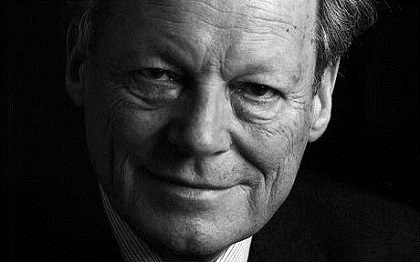 Willy Brandt became the first democratically elected Social Democrat to hold the chancellorship. Born in Luebeck in 1913, Brandt first joined the SPD in 1930 and later joined a smaller leftist grouping, the Socialist Workers Party (Sozialistiche Arbeiterpartei–SAP). After Hitler came to power, Willy Brandt emigrated to Norway, where he became a citizen and worked as a journalist. After Germany occupied Norway in 1940, he fled to Sweden. Willy Brandt returned to Germany after the war as a news correspondent and later as a Norwegian diplomat in Berlin. After he had again assumed German citizenship, Willy Brandt rejoined the SPD in 1947.
Willy Brandt became the first democratically elected Social Democrat to hold the chancellorship. Born in Luebeck in 1913, Brandt first joined the SPD in 1930 and later joined a smaller leftist grouping, the Socialist Workers Party (Sozialistiche Arbeiterpartei–SAP). After Hitler came to power, Willy Brandt emigrated to Norway, where he became a citizen and worked as a journalist. After Germany occupied Norway in 1940, he fled to Sweden. Willy Brandt returned to Germany after the war as a news correspondent and later as a Norwegian diplomat in Berlin. After he had again assumed German citizenship, Willy Brandt rejoined the SPD in 1947.
He became mayor of Berlin in 1957 and was the SPD candidate for the chancellorship in 1961. In the late 1950s, Brandt was a principal architect of the SPD’s rejection of its Marxist past and adoption of the Bad Godesburg Program, in which the party accepted the free-market principle. The triumph of the CDU/CSU in the 1957 national elections and widespread and increasing prosperity made such a step necessary if the SPD were to win the electorate’s favor. In 1964 Brandt became the chairman of the SPD. From 1966 to 1969, he served as minister for foreign affairs and vice chancellor in the Grand Coalition.
When Brandt became chancellor in 1969, he proposed a new policy toward the communist states of Eastern Europe; this policy later became known as Ostpolitik (policy toward the East). In recognition of his efforts toward détente in Europe, he received the Nobel Prize for Peace in 1971. In the early 1970s, Brandt also engineered a package of treaties that normalized the FRG’s relations with the Soviet Union and with Poland, the GDR, and other Soviet-bloc nations. He successfully withstood a vote of no-confidence in the Bundestag in April 1972 and won the Bundestag elections in November 1972 with an impressive relative majority of nearly 45 percent. Brandt resigned in May 1974, shocked by the discovery that one of his personal assistants, Guenter Guillaume, was a spy for the GDR.
In domestic policy, Willy Brandt and his FDP coalition partners initiated legal reforms, including the passage of more liberal laws regarding divorce and abortion, the latter reform generating intense public discussion. Education reforms calling for new types of schools and for overhauling administration of the universities were only partially carried out. Brandt and his coalition partners were more successful in realizing their foreign policy goals than in achieving their domestic aims.
Related articles:
Ostpolitik
Helmut Schmidt
The Student Movement and Terrorism in Germany
The Green Movement (Greens) in Germany
